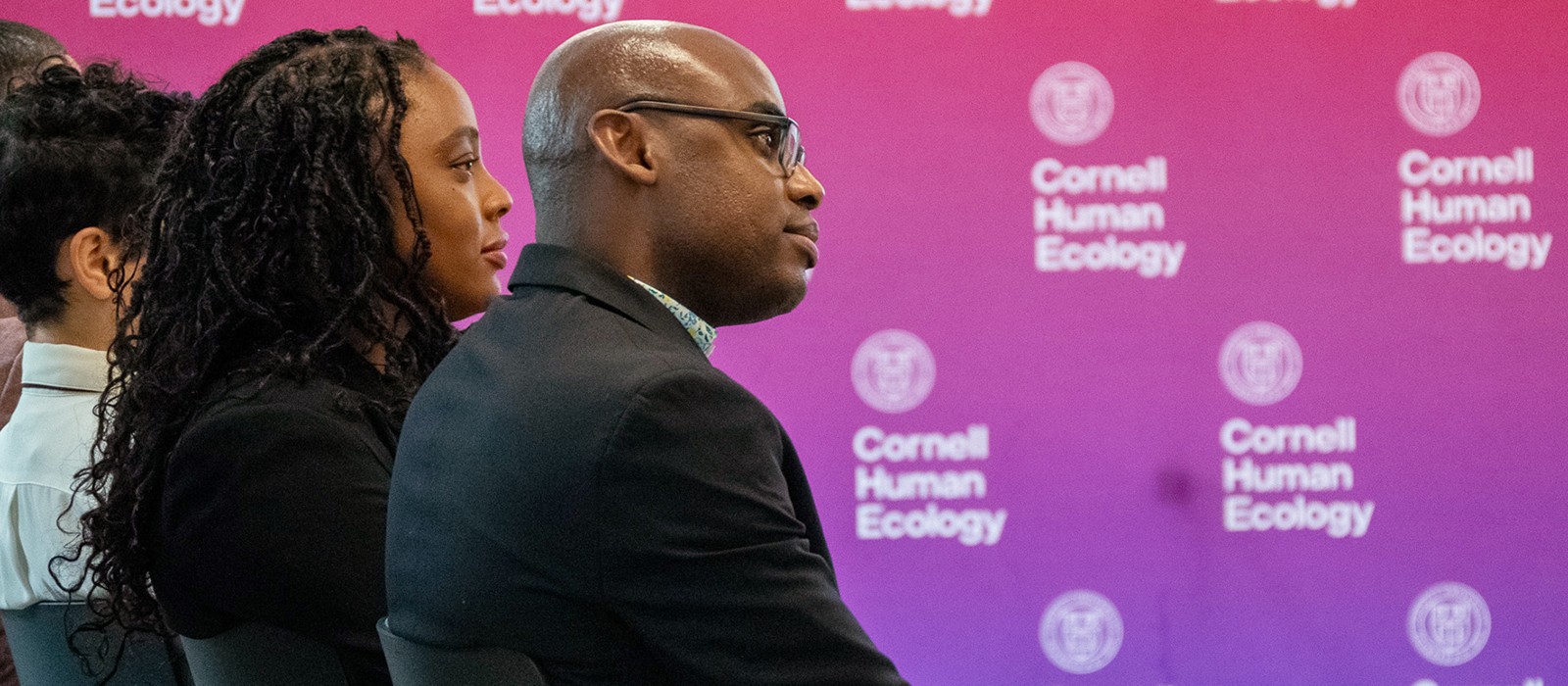Faculty in Cornell’s Action Research Collaborative (ARC) joined New York City and State policymakers and community members for ARC’s second symposium on June 22. The annual symposium is an opportunity for researchers, policymakers and community stakeholders to share their knowledge and advance equity in areas like nutrition and health, housing and social services, and youth development.
Co-directors Neil Lewis, Jr. ’13, associate professor of communication in the College of Agriculture and Life Sciences, and Tashara M. Leak, associate professor of nutrition in Cornell Human Ecology, launched ARC in 2022 to address issues of inequality by fostering collaborations across sectors and partners.
“Moving the needle on these issues requires having at the same table researchers who study the issues from a variety of disciplinary and methodological perspectives, community organizations that are working on the ground every day, and policymakers who are elected or appointed to represent the people in our broader systems of governance,” Lewis said in the opening remarks.
A recurring theme was the need for institutions to work more closely with the communities they impact.
“I think the barriers are institutions,” said Marcela Mitaynes, a New York State Assemblymember. “The system isn’t made for someone to come in and work with it.”
Mitaynes spoke about her eviction from the rent-stabilized apartment where she had lived for three decades, an experience that inspired her to become a tenants’ rights advocate. She played a pivotal role in the passage of the Housing Stability and Tenant Protection Act in 2019. When she decided to run for Assembly in 2020, she made housing issues a critical component of her campaign. While Mitaynes was able to make a place to create change from within the system, she said that is not the norm.
“It actually matters if the people who are most affected are involved in the processes for creating change,” said Jamila Michener, associate professor of government in the College of Arts and Sciences and senior associate dean for public engagement in the Jeb E. Brooks School of Public Policy. Michener is also an ARC faculty member. She stressed that communities are the best evaluators of their own needs and determining effective solutions.
Dr. Leslie Hayes, deputy commissioner of the Division of Family Child Health in the NYC Department of Health and Mental Hygiene (DOHMH), also spoke about the importance of community engagement.
“Having been a clinician on the front lines and having experienced — even within my own personal family — the inequities in healthcare, I understand, and I bring to my role, the need to always elevate the community,” she said.
According to Hayes, this involves tailoring resources to meet the specific needs of each community and including them in the decision-making process. For example, school-based clinics — an initiative the DOHMH is undertaking — make care more affordable and accessible for students without health insurance and those whose parents are unable to take time off work.
Rae Gomes, deputy director of the Brooklyn Movement Center, emphasized the importance of communities owning processes related to food distribution, jobs and education, rather than merely being served by outside organizations.
“All communities need to make their own decisions,” she said. “And communities need to be able to profit from the jobs that are created by doing all that work.”
The symposium also highlighted the interconnectedness of social issues. Gomes noted that the history of redlining — the discriminatory practice of withholding mortgages and other services from residents in certain neighborhoods — lives on today through inequities in housing, food security, health and more. Cea Weaver, campaign coordinator at Housing Justice for All, mentioned the correlation between evictions and decreased voting and civic participation, a relationship highlighted by a Cornell ILR report published earlier this year.
ARC members stressed that the symposium was just the beginning of collaborating to create change. The symposium was followed by a Day of Partnership on June 23, aimed at gathering Harlem community members to work together and make connections that lead to action research partnerships.
“The ARC was founded to facilitate the projects and partnerships that work in tandem with policymakers and community members and to make sure communities are benefitting from the resources and research we have at our disposal,” said Leak.





